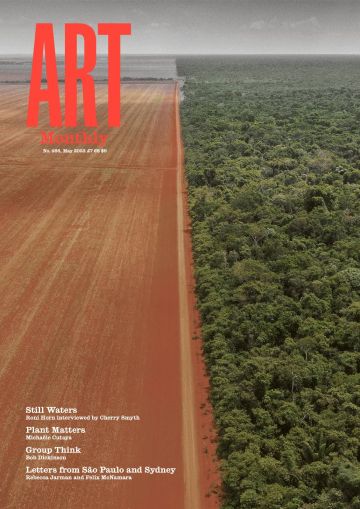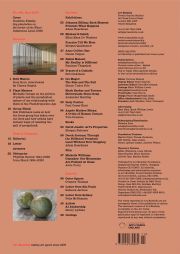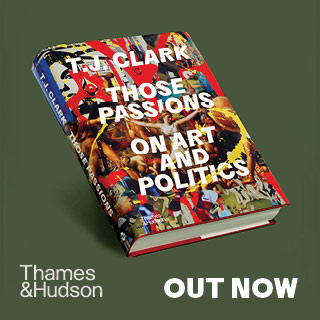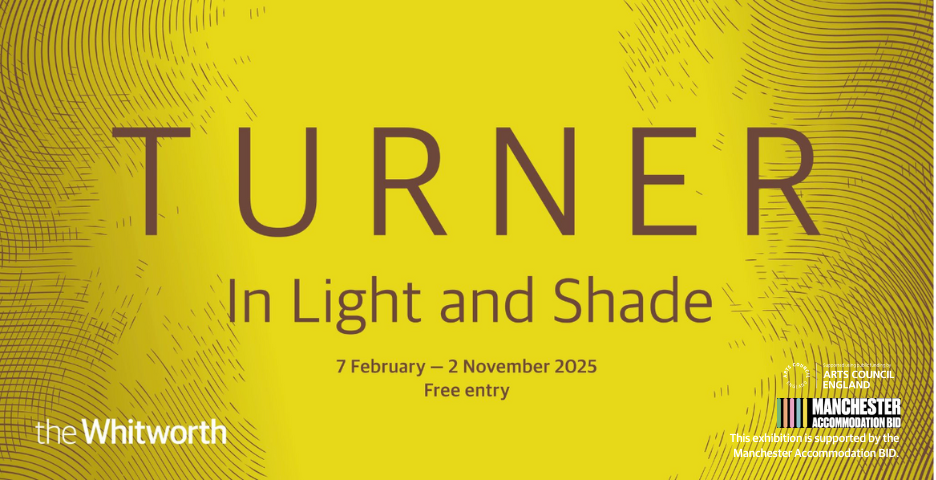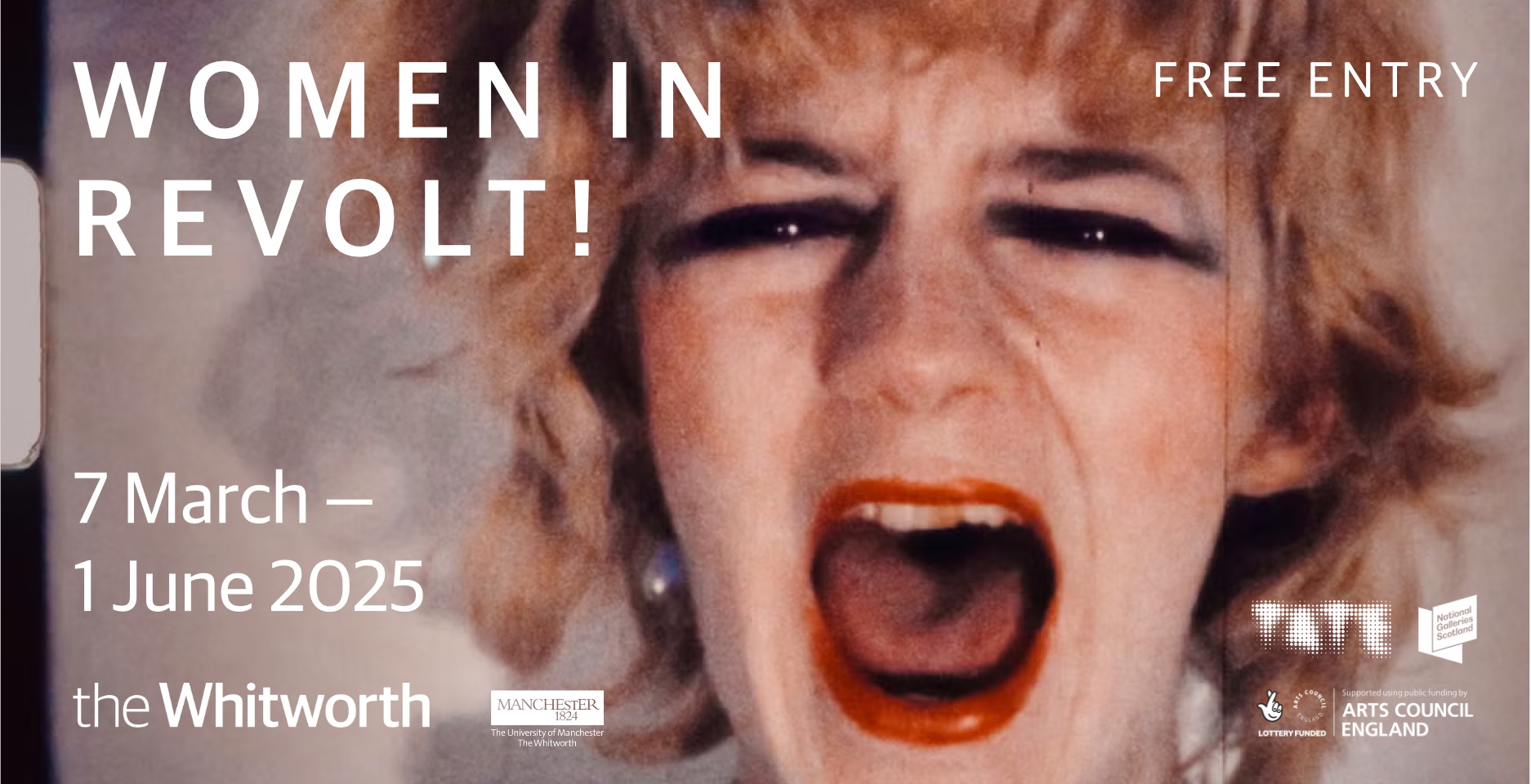Art Monthly 466
May 2023
Roni Horn
Interviewed by Cherry Smyth
Plant Matters
Michaele Cutaya
Group Think
Bob Dickinson
Letters from São Paulo and Sydney
Rebecca Jarman and Felix McNamara
Buy Now – select:
Want to read this right now?
Get instant access to the entire back catalogue via Exact Editions from only £8.99!
Contents
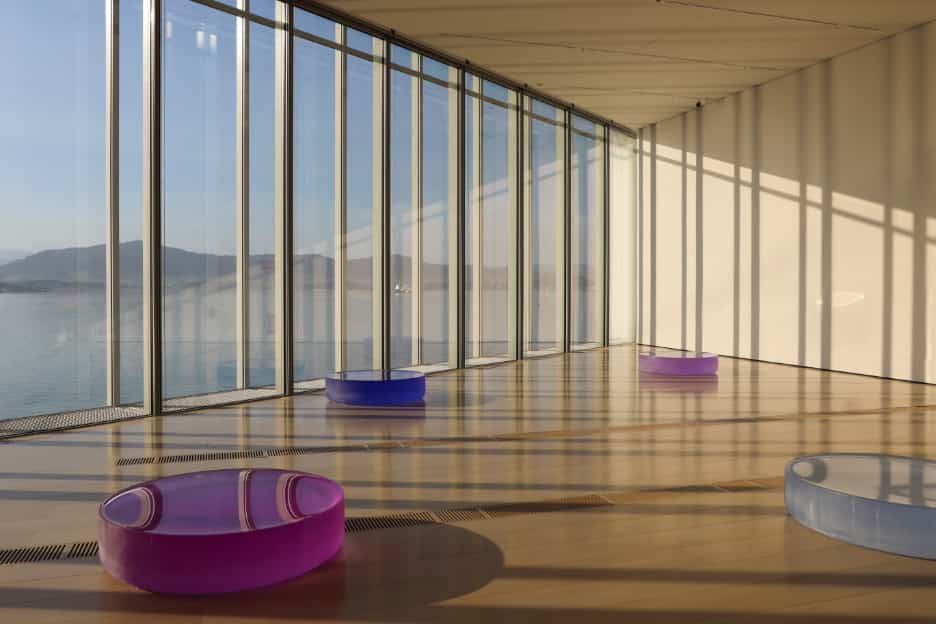
Roni Horn, Untitled (‘The tiniest piece of mirror is always the whole mirror’), 2022
Interview
Still Waters
Roni Horn interviewed by Cherry Smyth
We all know that we are coming to the end of the material potential of the planet. The actual is becoming so attenuated and rare, and my work depends heavily on the actual – I refuse to forsake it.
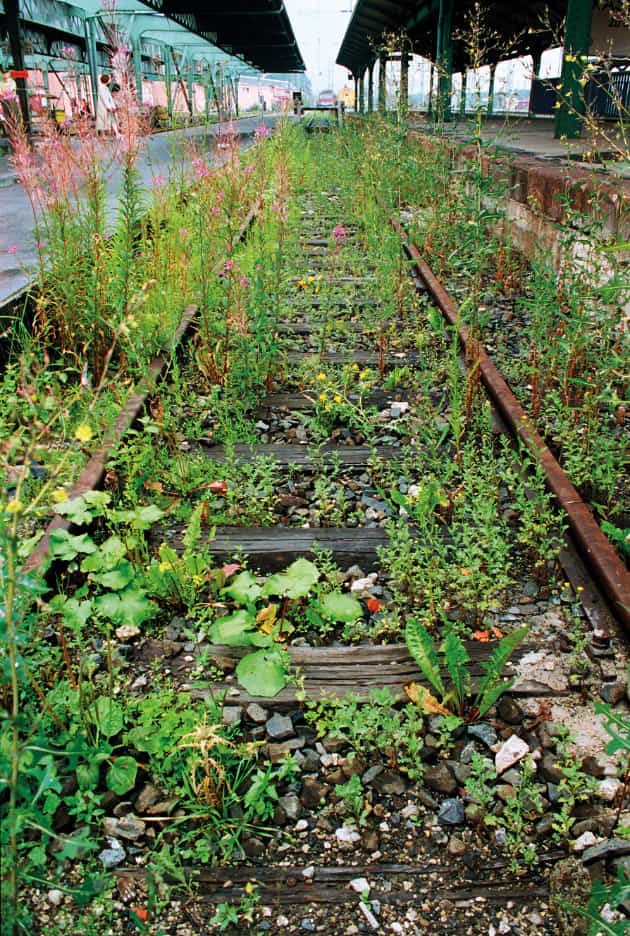
Lois Weinberger, What is Beyond Plants is at One with Them, 1997
Feature
Plant Matters
Michaele Cutaya on the politics of plants and the paradoxical nature of our relationship with them in the Planthropocene Age
There are affinities between weeds and artists: weeds are ‘useless’, they are ‘unwanted’, they grow in unexpected places, they disturb the established order. What’s not to like?
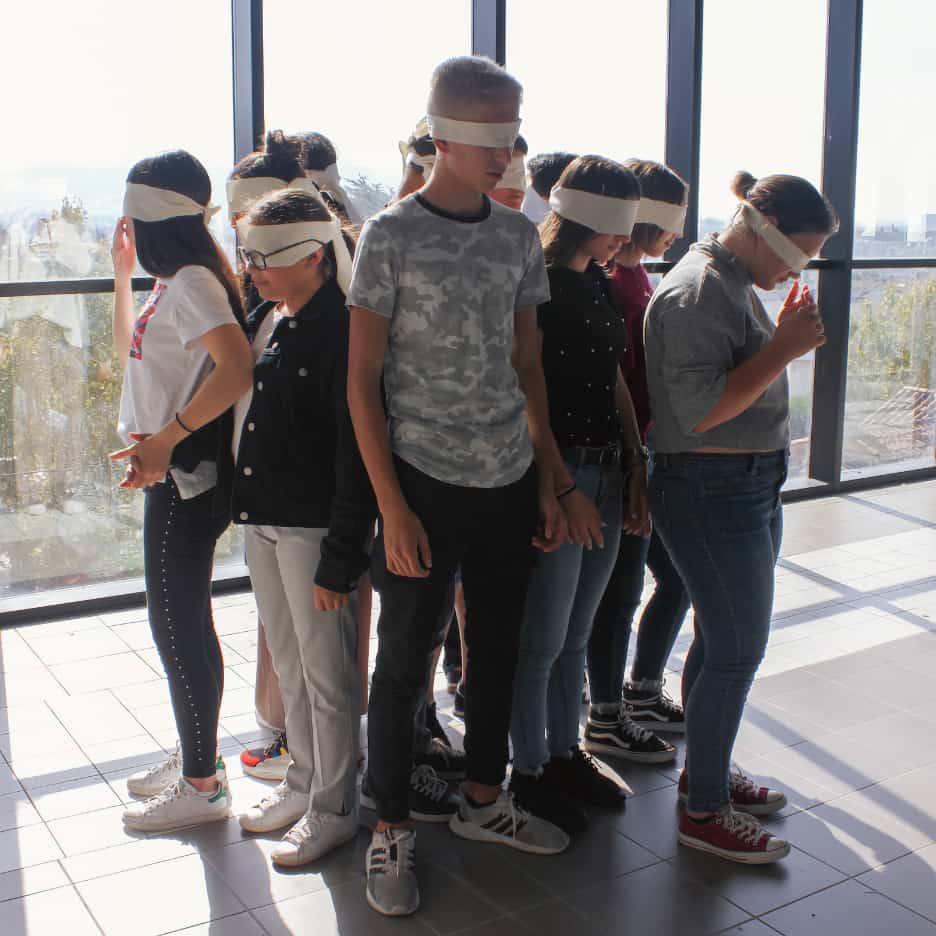
Stine Marie Jacobsen, Group Think, 2020
Feature
Group Think
Bob Dickinson looks at how the focus group has taken over our lives and how artists have devised ways of resisting the pull of groupthink
Dreamt up in the 1930s by the psychologist Ernest Dichter, focus groups are on the front line of our politics as well as our commerce. Who can blame artists for wanting to poke fun at these mind-altering methods, closely linked to the dark arts of marketing?
Editorial
I Protest
Placards have long fascinated artists, but a growing awareness of injustice now makes the interest as much an activist as an aesthetic one
Whereas other workers can draw attention to their case both by taking to the streets in protest and by withdrawing their labour though strike action, for artists such action, however justified, would not only be unlikely to make headlines let alone achieve its aims, but would also be the equivalent of an act of self-harm.
Letter
Side Gallery Closure
Susan Jones laments the funding disconnect between artist-led galleries and the flagship museums that present work nurtured by these grassroots organisations.
Artnotes
Clean and Green?
Activist group Fossil Free Science Museum stages a guerrilla book launch at the Museum; Boris Eldagsen’s AI-generated ‘promptograph’ wins a major international photography prize; the Met Museum’s financial ties with antiquity traffickers are revealed by investigative journalists; an international police raid uncovers a previously unknown Jackson Pollock drip painting; a new report slams the art market’s openness to organised crime; plus the latest on galleries, people, awards and more.
Obituaries
Phyllida Barlow 1944–2023
Colin Perry
Irma Blank 1934–2023
Martin Holman
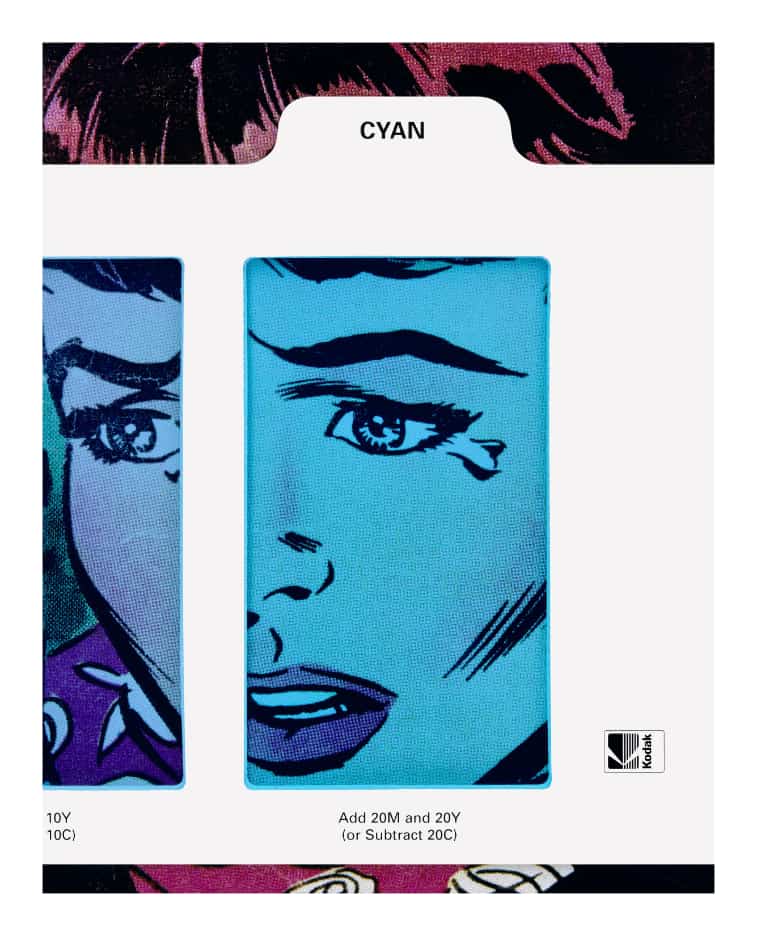
Anne Collier, Filter #4 (Cyan), 2021
Exhibitions
Johanna Billing: Each Moment Presents What Happens
Hollybush Gardens, London
Adam Heardman
Michael E Smith
Henry Moore Institute, Leeds
Ellen Mara De Wachter
Practise Till We Meet
esea contemporary, Manchester
Morgan Quaintance
Anne Collier: Eye
Lismore Castle
Daniel Culpan
Nalini Malani: My Reality is Different
National Gallery, London
Ranjana Thapalyal
Traces of a Cathode
S1 Artspace, Sheffield
Bob Dickinson
Liz Magor: The Rise and The Fall
Focal Point Gallery, Southend-On-Sea
Henry Tudor Pole
Mark Barker and Terence McCormack: Stone Soup
Roland Ross, Margate
Alexander Harding
Body Poetics
GIANT, Bournemouth
Paul Carey-Kent
Angelo Madsen Minax: A Crisis of Human Contact
De La Warr Pavilion, Bexhill-on-Sea
Tom Denman
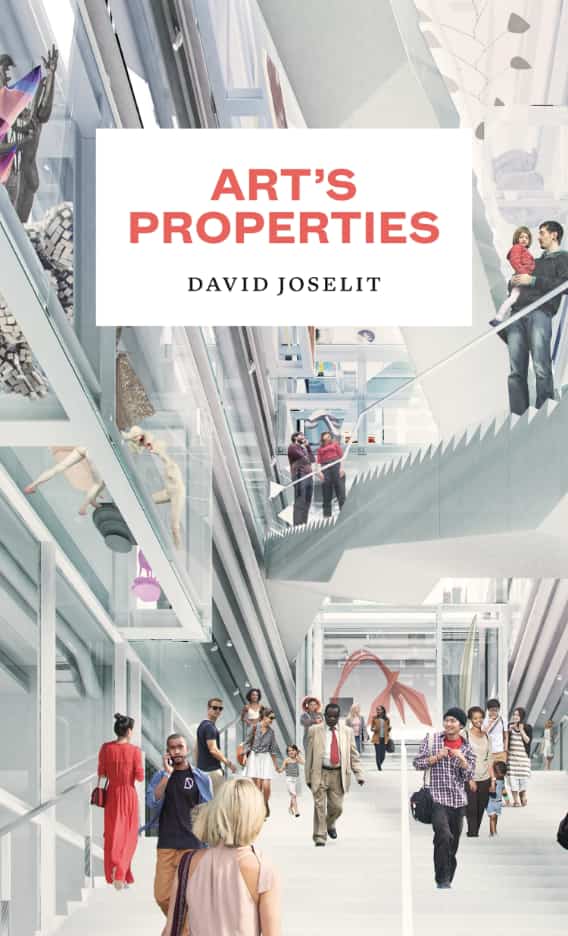
David Joselit, Art’s Properties
Books
David Joselit: Art’s Properties
Morgan Falconer
David Joselit points out that modern art increasingly depends on the concept of self-possession; indeed, artists are valued as exemplary cases of expressive self-possession. But those who cannot fully possess themselves, those to whom the dominant society denies full selfhood due to, say, their race, cannot mount this primary claim.
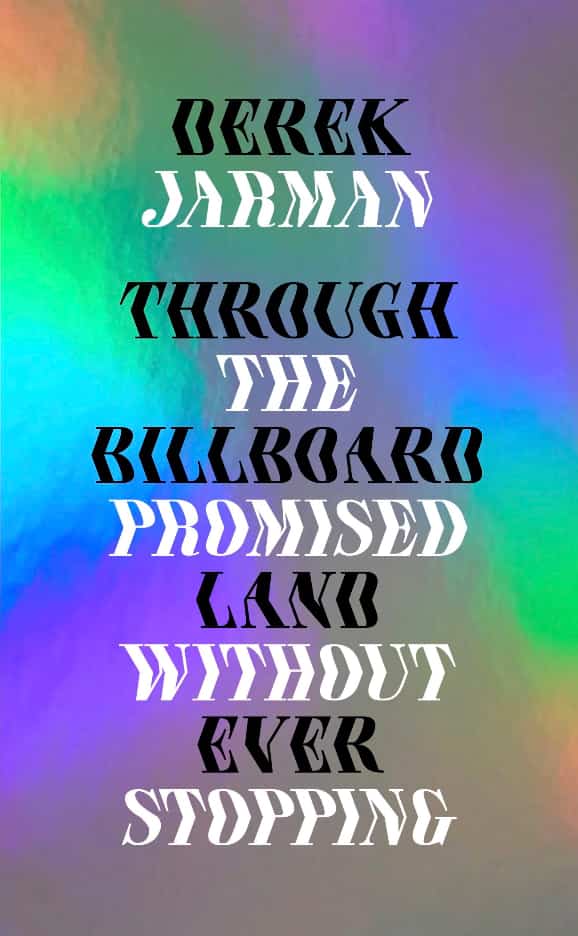
Derek Jarman, Through the Billboard Promised Land Without Ever Stopping
Books
Derek Jarman: Through the Billboard Promised Land Without Ever Stopping
Adam Heardman
This crucial artwork reminds us that the excavating work of criticism and the ‘pure vibes’ of biography-fetish can both miss the point by placing a barrier between artist and viewer that had already been overcome by the artwork.
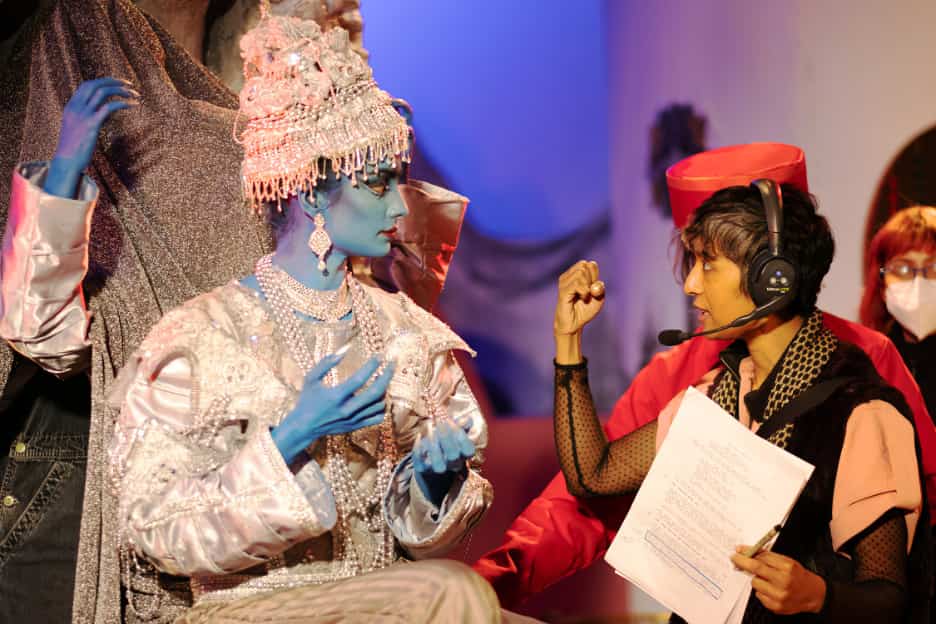
Michelle Williams Gamaker, Thieves, 2023, production still
Film
Michelle Williams Gamaker: Our Mountains Are Painted on Glass
Amie Corry
Despite its time-travelling, the new film Thieves employs a linear narrative structure. It has a clear arc, complete with denouement (a short, sharp moment of bloodletting before the set is claimed by our heroes) and the satisfying sound of the director’s ‘Cut!’ to end.
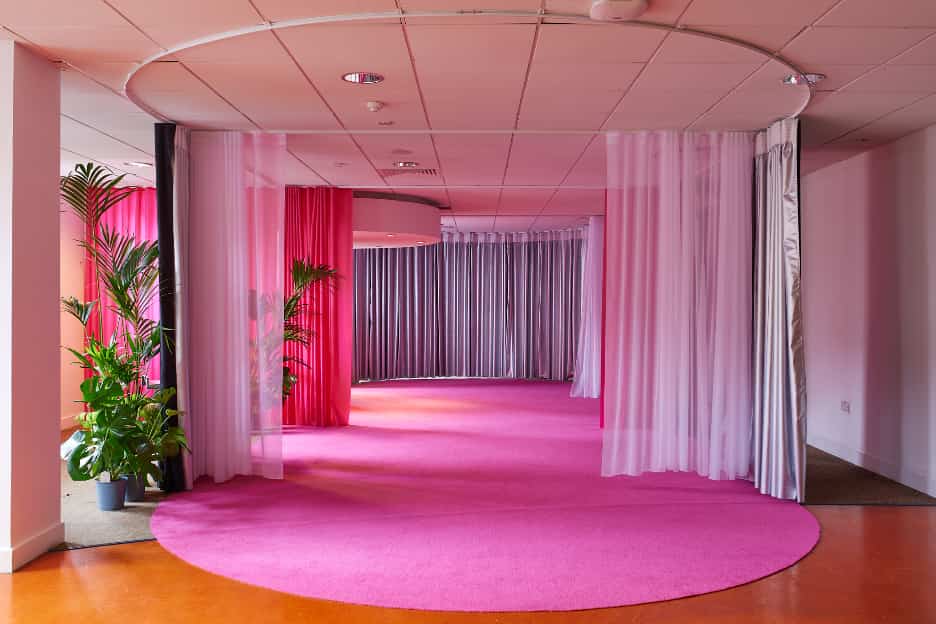
Dissenter for Space Studies, Edinburgh
Reports
Outer Spaces
Greg Thomas reports on the rise of short-let artist-run spaces in Edinburgh city centre
Landlords get rates relief or other benefits from properties let in this way as long as artists are visibly present; they can also cancel the lease at short notice if a new corporate tenant comes knocking.

Renan Suyá/Rede Xingu+, Khĩkatxi village of the Khisêtje people during a fire caused by non-indigenous people around the Wawi Indigenous Land, part of the Xingu Indigenous Territory, 2022, from the exhibition ‘Xingu: Contatos’ at IMS
Reports
Letter from São Paulo
Rebecca Jarman
To greater and lesser degrees of success, Brazilian institutions are determined to create spaces for reflection and debate in order to emphasise the importance of collaboration. Such aspirations are tempered by simmering tensions in a country in which political divisions are visceral.
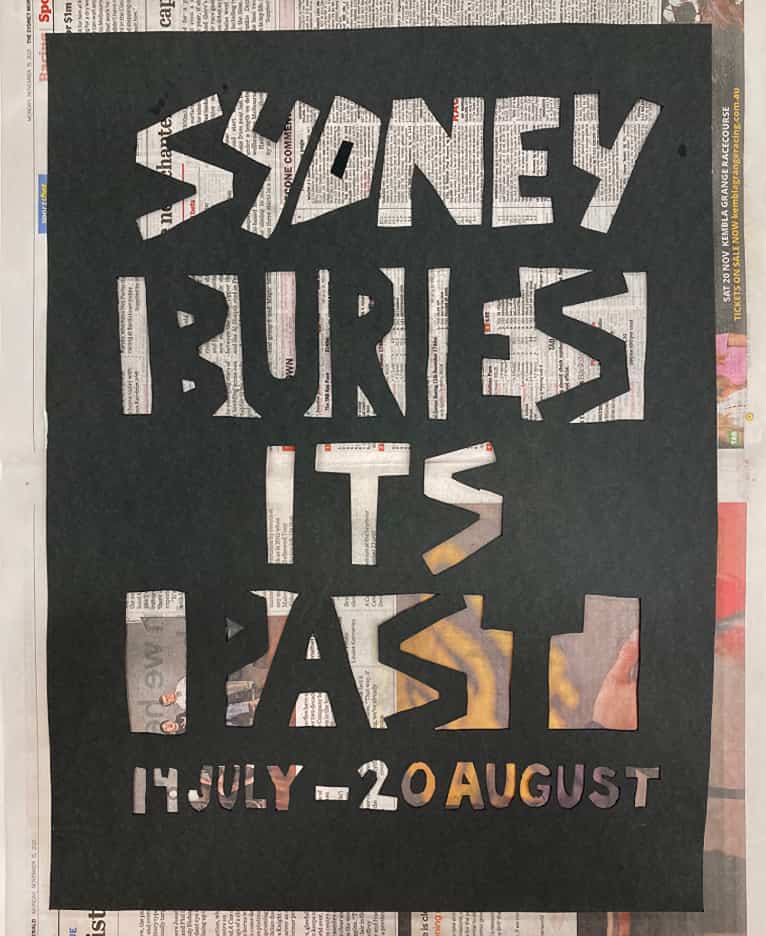
‘Sydney Buries Its Past’ poster, Tin Sheds Gallery
Reports
Letter from Sydney
Felix McNamara
The exhibition ‘Sydney Buries its Past’ was a welcome alternative to the class-blindness often manifested by supposedly ‘political’, generally middle-class artists/writers/ filmmakers, an effect of the all-too-familiar internationally pervasive individualism that favours solipsism over solidarity.

Boris Eldagsen, Pseudomnesia | The Electrician, 2022, AI-generated ‘promptograph’ which recently won the Sony World Photography Award
Artlaw
AI Authorship
Henry Lydiate
The new guidance from the US Copyright Office clarifies that work containing wholly AI-generated material may not be copyright protected, if it was not the product of ‘human authorship’.

